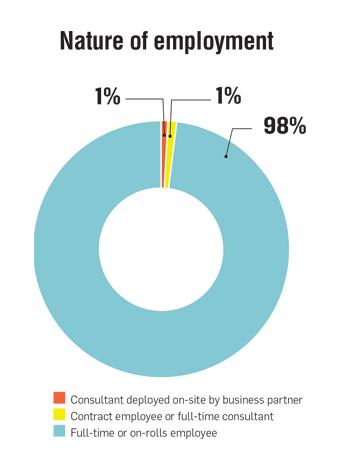
'IT mangers can no longer stick to just provisioning of infrastructure. Most development today happens in agile methodology' --MS Kiran, Director – DevOps Technology, [24]7
Organisations always want to be agile and more efficient. However, traditionally the functional silos of operations and development have poor intertwining relations. The initiative called DevOps that brings together the two teams on a collaborative platform makes sense in many ways for businesses to grow.While this reinforces the integration between two teams, the approach also steers clear of dysfunctions that arise out of the silo culture.
Most large organisations are already leveraging it to ensure continuous delivery with enhanced collaboration. As against the orthodox development methodology where the focus used to beon stability, DevOps aims at bringing applications faster without compromising on performance.
The key benefit with DevOps is high quality applications at reduced costs associated with fixing bugs and applying patches later. It is more of a collaborative approach where the IT operations and application life cycle development and management are tightly coupled resulting in improved communicationa mong peers, establishing a more cohesive learning environment within the organisation. '60 per cent of data center application failures are the result of faulty deployment and uncoordinated changes,' says a report. DevOps standardises coordination between the teams, thus bringing in agility toorganisations with reduced gaps between.
The initiative also standardises the coordination of development and operations, which results in accelerated delivery of products.
The cultural shift
The ultimate objective of DevOps is to bring in agility, reducing the product cycle-time from idea inception and delivering the value toyour users. So, by deploying DevOps, enterprises can automate continuous delivery, and facilitate real-time collaboration betweendevelopment and IT.
 MS Kiran, Director —DevOps Technology, [24]7
MS Kiran, Director —DevOps Technology, [24]7 This also helps enterprises establish standardand protocols to reduce product lifecycles. DevOps is not really about processes but about cultural shifts, says MS Kiran, Director —DevOps Technology, [24]7. When asked why IT managers should take cognizance of DevOps, hesays, “IT mangers can no longer stick to just provisioning ofinfrastructure and maintaining the same.” He adds, “Currently,most development happens in agile methodology; IT shouldget involved from day one on technologies to be used for provisioning the infrastructure and deployments.”IT should be around to troubleshoot and offer a faster feedback mechanism which will contribute to real agile development, Kiran adds.
In today’s rapidly changing world, one of the key aspects of software is building generic products, and pivoting these to numerous customers till the right segment is found. The sameis true for enterprises where one given solution does not fit the requirements of all customer segments until it is tweaked to do so.
Therefore, development teams are required to be geared up with multiple skills including knowledge of multiple programming platforms, test first and develop later attitude, and a deep understanding of design, says Jayanth Bagare, Product Owner,Custom Development & Strategic Engagements, SAP Labs India.
 Jayanth Bagare, SAP Labs India
Jayanth Bagare, SAP Labs India They should be accustomed to continuous integration withthe markets either through the sales team or with the customer directly, and deliver in extremely fast turnaround time. From an operations perspective, getting simpler legal definitions, pricing, customer release and support is critical, as today’scustomers are flooded with choice.
Plus, if the conversation is not simplified, the risk of losing customers is pertinent.
Cross functional visibility
The lack of right resources in a crunch situation is a problem facedby many project and product managers. At the same time, there are developers who have some amountof free bandwidth at various points of time, says Vidyasagar Reddy, a Senior Developer with SAP Labs India.
DevOps helps keeps employee engagement and motivation high, as it allows for cross team visibility and new learning, says the developer who is a part of the DevOps project.
Development and operations teams can benefit from insights into each other’sprocesses, and measure progress. Getting to know work priorities on the other side help steer clear of confusion, thus leading to efficiency.
The role of IT
Having a strategy in place for implementing DevOps isimportant. Instead of thinking how IT can change the world, you should think of how business situations enforce changes in IT systems. So, the IT team has lead to make sure everything isin place to embark on DevOps. It has to ensure eliminating the gaps between skills and workforce availability.
IT teams should convince themselves and the higher management to invest in tools and technologies enabling transformation from traditional IT technologies to DevOps.They have to promote the shift in culture from departmental silos to cross-functional and collaborating teams, and empower teams to promote adoption of DevOps to their projects.

 In
In
Comments
Patanol https://abuycialisb
Patanol https://abuycialisb.com/ - Buy Cialis acheter du viagra <a href=https://abuycialisb.com/#>Buy Cialis</a> buy levitra online with paypal
Add new comment